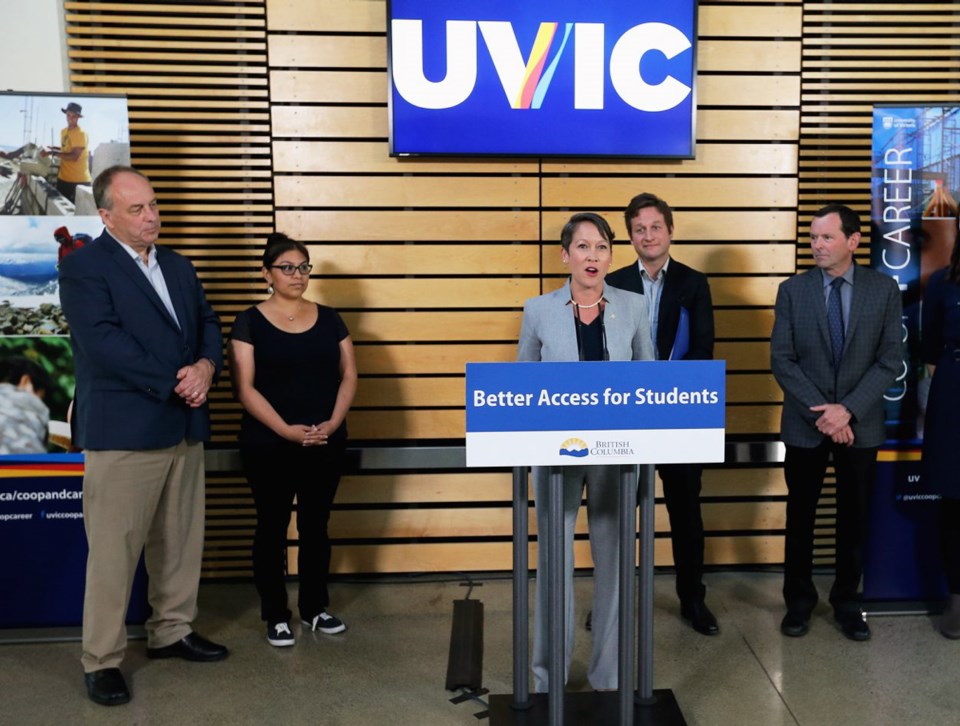The provincial government announced $9 million in funding for co-operative education Monday, believed to be the biggest B.C. investment in 20 years in co-op learning.
At the University of Victoria, Melanie Mark, minister of advanced education, announced the funding alongside Green Party Leader Andrew Weaver, a UVic professor and MLA for Oak Bay-Gordon Head, which includes UVic.
The money will be available to 25 post-secondary institutions in B.C. and their partners.
The B.C. Ministry of Advanced Education will make the funding decisions. Assisting will be the Accountability Council for Co-Operative Education and Work Integrated Learning, a non-profit organization drawn from post-secondary institutions in B.C. and Yukon.
Mark said it’s believed the $9 million is the biggest investment in co-op educaiton in the last 20 years. Providing opportunities for students to gain practical work experience will be hugely valuable for them and B.C, she said.
“We know at our ministry it is imperative to invest in people,” said Mark. “Why would we not want to invest in the 21st century and the next generation?”
Co-op style learning allows students to step away from the classroom to work in their intended fields gaining experience and making contacts. At UVic, co-op placements are mandatory for engineering and business students but are available to students in other areas.
The B.C. government says that during 2018-2019 about 17,000 co-op work placements were filled with 7,800 employers. Placements were concentrated in engineering at 31 per cent, business/administration at 18 per cent, computers at 16 per cent, and science at 14 per cent.
About 11,300 of the latest co-op placements were in the private sector, 4,800 were in municipal, provincial and federal governments, and 900 were with non-profits.
Weaver, a climate-science professor at UVic before entering politics, said co-op education is vital in filling the job market. “Our labour market in this province is demanding educated, skilled workers.”
Weaver said he is especially supportive of having institutions and partners apply for funding. He said it is a good acknowledgment that government can’t be expected to supply all answers.
Weaver called UVic a Canadian pioneer institution in co-op education dating to the 1970s. He said UVic, along with the University of Waterloo in Ontario, can call itself one of the top two co-op institutions in Canada.
Weaver said what really sets UVic apart is the wide breadth of co-op opportunity it offers. Other universities will concentrate on co-ops for professional streams like engineering. UVic has always remained committed to the idea that all fields, from fine arts to science and engineering, should be granted chances to pursue co-op sessions.
“It’s become a very strong program and one that’s widely acknowledged as being one of the best,” said Weaver. “It’s part of the culture here at UVic.”


